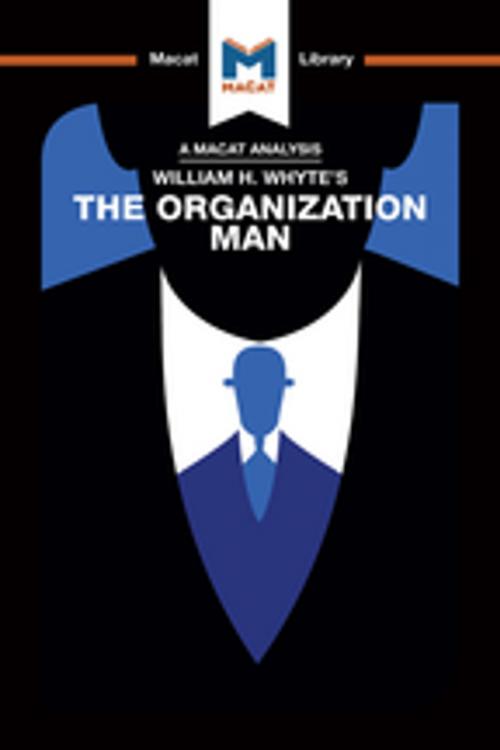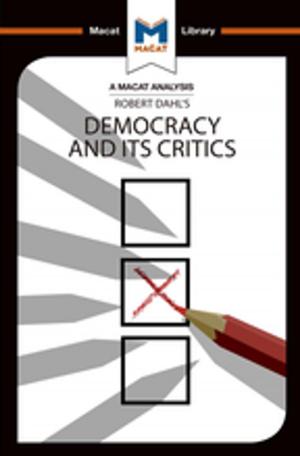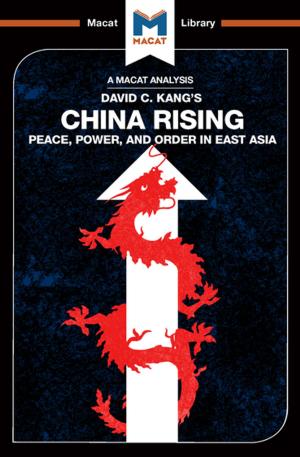William H. Whyte's The Organization Man
Nonfiction, Social & Cultural Studies, Social Science, Sociology, Fiction & Literature, Literary Theory & Criticism, Business & Finance| Author: | Nikki Springer | ISBN: | 9780429818950 |
| Publisher: | Macat Library | Publication: | May 11, 2018 |
| Imprint: | Macat Library | Language: | English |
| Author: | Nikki Springer |
| ISBN: | 9780429818950 |
| Publisher: | Macat Library |
| Publication: | May 11, 2018 |
| Imprint: | Macat Library |
| Language: | English |
William Whyte’s core idea in The Organization Man is that the Protestant Ethic that characterized financial and personal success in American history had been replaced in modern times by the Social Ethic. This stressed the group as the source of creativity and emphasized that the greatest need of the individual is to belong to a group. To investigate this idea, Whyte spent years interviewing the CEOs of Fortune 500 companies when he was an editor at Fortune magazine, one of the top business publications in the United States at the time. What he found was that the recruitment and training were much more focused on “cultural fit” than on technical skill or experience level. As the ranks of new junior executives grew in post-World War II America, so did their impact on urban development and consumer spending. Droves of “package suburbs” sprang up in the fields surrounding major metropolitan areas, and a strong post-war economy coupled with funding from the GI Bill made new homes, cars, and household goods affordable for young families.
William Whyte’s core idea in The Organization Man is that the Protestant Ethic that characterized financial and personal success in American history had been replaced in modern times by the Social Ethic. This stressed the group as the source of creativity and emphasized that the greatest need of the individual is to belong to a group. To investigate this idea, Whyte spent years interviewing the CEOs of Fortune 500 companies when he was an editor at Fortune magazine, one of the top business publications in the United States at the time. What he found was that the recruitment and training were much more focused on “cultural fit” than on technical skill or experience level. As the ranks of new junior executives grew in post-World War II America, so did their impact on urban development and consumer spending. Droves of “package suburbs” sprang up in the fields surrounding major metropolitan areas, and a strong post-war economy coupled with funding from the GI Bill made new homes, cars, and household goods affordable for young families.















